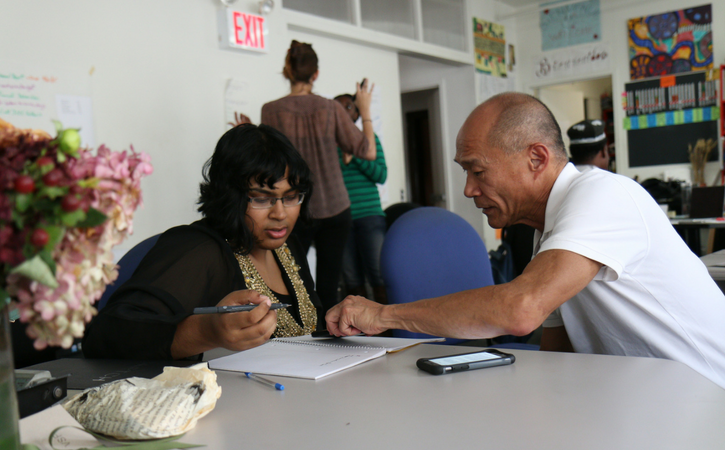You want a career helping people, but you don’t want to be in school – or worse, in debt – for the rest of your life. The solution should be obvious: You should be a counselor.

Counselors, or therapists, offer guidance to individuals struggling with various problems. Unlike psychiatrists, who must endure four years of med school, four years of a residency program and a difficult and expensive examination process, counselors rarely need more than a graduate-level degree before they can begin accepting clients and improving lives. Plus, at the peak of their careers, counselors can earn salaries as high as six figures, depending on their location and clientele.
If this sounds like the perfect path for you, here is a handy guide for becoming a licensed counselor.
Start with a Bachelor’s Degree
A counseling career always begins with a bachelor’s degree in a related field. Ideally, you should choose a major that directly relates to the field of mental health, like psychology. Psychology is the study of the human mind, with emphasis on how the mind functions in certain situations. Often, psychology degrees provide insight into mental disorders. Though counselors are not equipped to make diagnoses or provide medications for mental disorders, the ability to recognize a more serous mental problem could be beneficial during your later career.
If psychology isn’t for you, there is a handful of alternative undergraduate degrees practical for the aspiring counselor. For example, some schools offer specialized counseling programs, which will apply directly to your future profession. Additionally, you might consider earning a degree in social work or sociology, which will provide a more macro view of human behavior and thought patterns.
Gain Real-World Experience
Though you can move straight from an undergraduate program into a graduate program, it is best to spend at least a year in the real world, gaining a clearer picture of the counseling profession. You should shadow various mental health professionals in different environments.
For example, you should spend time listening in on a family and marriage counselor at a private practice, a substance abuse counselor at a rehabilitation facility, a grief counselor in the hospital and a sports psychology counselor within a college athletics department. This experience will help you pinpoint the type of counseling you most enjoy, so you can make an accurate decision regarding your graduate education.
Move onto Your Master’s
An advanced degree is mandatory for those wishing to practice clinical therapy – meaning anyone who wishes to help clients tackle real-world problems. Clinical psychologists need Ph.D.s and psychiatrists require M.D.s with extensive internship and residency experience, but clinical counselors require only a master’s degree. Typically, this is a two-year program that prepares you with the right techniques for identifying and addressing client issues.
If you have an enviable internship or a profitable day job, you might be hesitant to quit and start a master’s degree program. Fortunately, there are CACREP-accredited online Master’s in Counseling programs, which allow you to engage in a high-quality education that fits around your schedule.
Specialize, If You Want To
During your real-world experience, you might identify greater passions in specialized fields of counseling. If this is the case, you prepare for these fields as necessary. Some fields demand unique certifications or degrees; for example, you can find specific school counseling master’s degrees to ready you for counseling positions in institutions of education. In fact, any counseling career associated with children typically requires additional training because children demand different counseling techniques than adults. Some states will have unique licensing requirements for different types of counselors, so you should research what you need well before you begin to practice.
Cultivate A Clientele
Once you are educated, trained and licensed, you can begin practicing as a counselor. Early in your career, it is wise to find employment at an existing practice or mental health institution. However, as you gain more confidence and capability, you might consider opening your own counseling practice. To do this, you need to cultivate a clientele, which is often more difficult said than done. To run your practice effectively, you might need to return to school for courses in marketing, finance and business administration. Then, you can leverage these business skills to attract enough clients – as well as talented counselors – to your practice. By running an effective private practice and maintain a stable clientele, you can earn more money and satisfaction in the mental health field.


